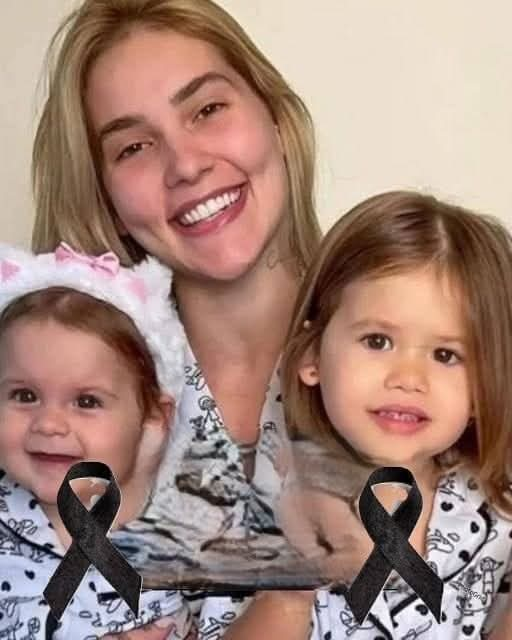On an ordinary, sunlit afternoon in Cedar Falls—a day that felt almost too peaceful, the kind that makes parents lower their guard—two little girls wandered through a field behind their home, plucking wildflowers with the kind of carefree delight only children can summon. Emma watched them from a short distance, smiling at the sight of their tangled hair and grass-stained knees, believing this moment would be one of those soft, golden memories that stay with you forever. But all it took was a handful of blossoms, one innocent brush against their skin, for that picture-perfect afternoon to twist into something nightmarish. Within minutes, the laughter turned into coughing. The coughing turned into gasping. And as both sisters’ tiny bodies weakened in frightening synchrony, Emma felt the world tilt beneath her feet. Her heart fractured with every second that passed—the wildflowers scattered on the ground, the girls clutching at their throats, the air suddenly too thin. Yet in the middle of that panic, in the middle of her mind begging her to freeze, she made one instinctive, life-saving choice that changed everything.
When Emma crashed through the fire station doors, breathless and shaking, her voice split in half as she screamed for help. The firefighters, who had been sipping coffee and completing routine checks moments earlier, instantly snapped into action. The easy hum of their afternoon vanished, replaced by the sharp crackle of urgency. Gear dropped to the floor. Boots pounded across the tiles. Paramedics raced forward with equipment already in hand. The girls were lifted gently but swiftly onto waiting gurneys as oxygen masks were pressed over their faces with practiced steadiness. Questions—rapid, precise—filled the air. “How long have they been like this?” “Did they touch anything unusual?” “Any history of allergies?” The girls’ flushed cheeks, swelling lips, watery eyes, and wheezing breaths painted a scene more terrifying than any parent should ever face: a severe, rapidly escalating allergic reaction triggered by the very wildflowers they had been joyfully collecting minutes earlier.
In the ambulance, Emma clung to the side rail as paramedics worked with calm intensity, administering medication while monitoring the girls’ dangerously unstable vitals. Every bump in the road felt like an eternity. Every soft, strained inhale from her daughters was a tiny thread holding Emma together. She whispered over and over, “Stay with me, baby. Stay with me,” as though her voice alone could anchor them.
When they finally reached the hospital and doctors rushed the girls into treatment, the world became a blur of white coats, flashing monitors, and clipped medical terms. Minutes felt like hours. But slowly—so slowly—the medications took hold. The swelling began to ease. The desperate gasping softened into steady breaths. And Emma, trembling with a mixture of relief and lingering terror, finally allowed herself to exhale for the first time since the nightmare began.
Later, when the room had quieted and the girls slept curled under warmed blankets, a doctor pulled Emma aside. His voice was gentle but carried the weight of truth she would replay in her mind for years. He explained that the reaction had been severe, unpredictable, and dangerously fast-moving. And then came the words that struck Emma to the core: “If you had waited even a few more minutes… the outcome could have been unimaginably worse.”
It was a sentence she would never forget.
That night, Cedar Falls wrapped the family in support. Neighbors dropped off food. Friends lit up Emma’s phone with messages of love. Parents who had heard the story held their own children a little tighter. But Emma carried something entirely different—a sharpened instinct, a fierce awareness she had never known before. She realized that the fear pelting her chest in those first moments hadn’t been panic—it had been warning. Wisdom. A signal her mind didn’t have time to analyze but her heart knew to obey.
In the days that followed, she replayed everything that happened. The field, the laughter, the collapse into chaos. And ultimately, she understood that what saved her daughters wasn’t medical knowledge or perfect composure—she had neither. It wasn’t luck, though it felt like a miracle. It was her willingness to trust that primal alarm inside her, to move without hesitation, and to know that risking embarrassment or overreaction was nothing compared to risking regret.
Her story became a quiet reminder whispered among parents in Cedar Falls and beyond: that sometimes the smallest decisions, made in the most terrifying moments, can become the line between tragedy and survival. And that trusting your instincts—fiercely, immediately, unapologetically—can be the greatest act of love a parent ever makes.
